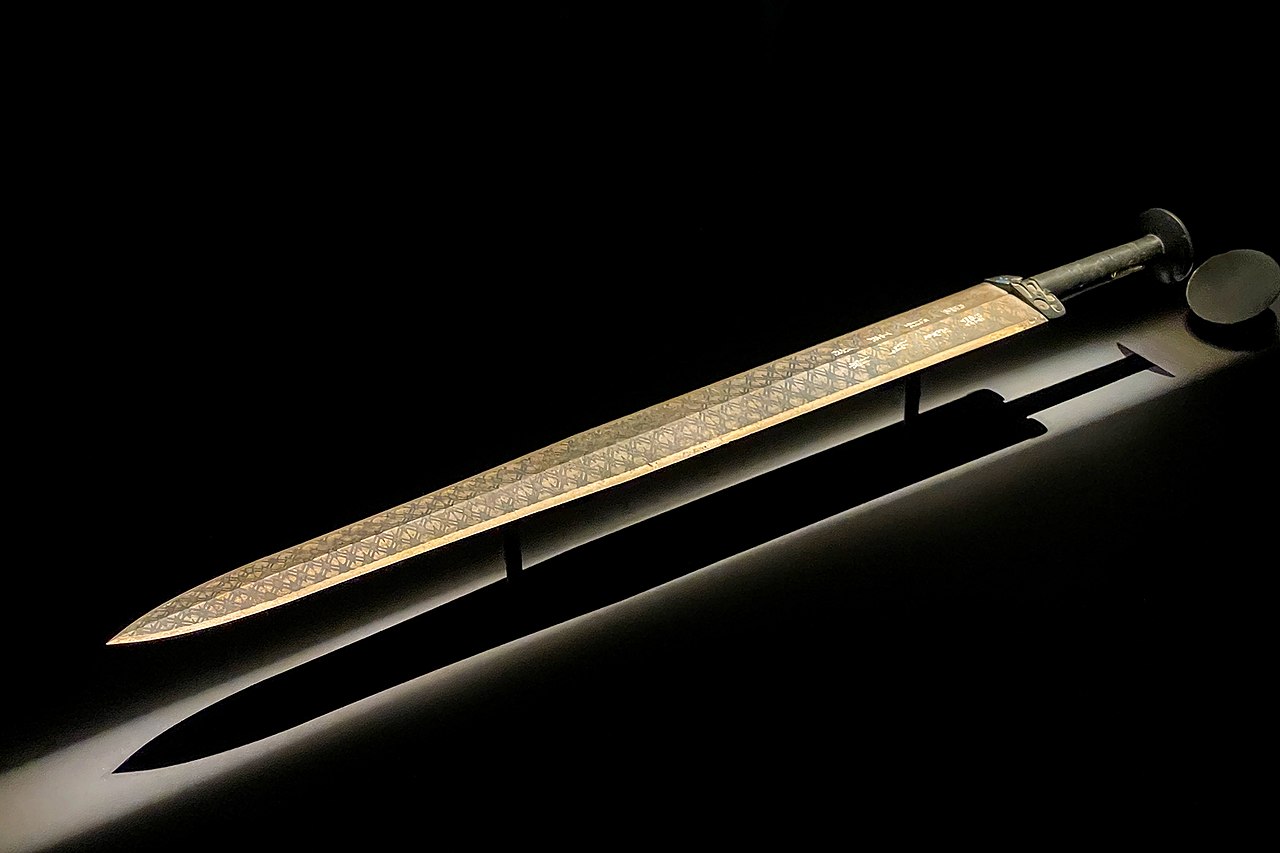IN EARLY APRIL this year, I went on a trip to Wuhan in Hubei Province (湖北武漢). At the Hubei Provincial Museum, I found a long queue in front of a collection. Out of curiosity, I approached the attractive treasure, and found long tin-bronze sword in front of me. It was the “Sword of Goujian” (越王勾踐劍), a personal weapon of Goujian (勾踐), the King of Yue State (越國) in the Spring and Autumn Period (770 BC to 481 BC).

As the highlight of the museum collection, the sword not only represented the outstanding metal casting technique of two thousand years ago, but also reminded me of the story of Goujian, whose tale has developed into a Chinese idiom that every Chinese student learns in primary school.
In 496 BC, a soldier named Goujian led his Yue army from his state in present-day Zhejiang, Shanghai and Jiangsu provinces of China, to nearby Wu State (吳國) and successfully defeated his enemy.

Helu (闔閭), the then king of Wu, was so grieved by the attack that he told his heir Fuchai (夫差) with his last breath to avenge him by killing Goujian and destroying Yue.
Fuchai kept his father’s request in mind and worked to strengthen his army day and night.
Finally, after two years, he defeated Yue, and eventually it was time to make a decision: to kill Goujian or not?
At that moment, one of Fuchai’s ministers, a cautious man named Wu Zixu (伍子胥), persuaded the king that he should kill Goujian immediately in order to eliminate future problems. “Goujian is far-sighted and prudent, and his minister Fan Li (范蠡) is wise. So we cannot look down on them. If you pardon him and spare his life, he will surely return to our territory and take revenge. The best way to end the trouble is to kill Goujian,” Wu Zixu said.

Fuchai, however, was basking in the happiness of victory. Besides, Goujian’s letter of surrender had touched him. In it, Goujian said that he was willing to be a servant for Fuchai if only he could live.
Sensing Fuchai’s hesitation, another minister, Bo Pi (伯嚭), who had accepted a bribe from Goujian, pushed the boat with the current and expressed the opposite opinion to that of Wu Zixu, telling the leader what he wanted to hear. He told them to let Goujian and his minister Fan Li live.
Fuchai agreed. Goujian would be spared.
But Fuchai would come to regret that decision.
Goujian took his minister and his wife to Wu State, where they tended cattle and did chores every day. Eventually, he won Fuchai’s trust and favour, and was sent back to Yue after three years.
As soon as he returned to his state, Goujian moved his bedroom into a simple thatched hut with a brushwood mattress and hung bitter gall in the cellar.
When he woke up, he would lick the sour gall to remind himself that life was hard and it was his job to be diligent and sober.
He also had a soldier stationed at his door to ask him every morning: “Have you forgotten your shame over the past three years?”
During the day, Goujian worked with his people in the fields, and his wife weaved cloth with ordinary women in the countryside.

The ruler’s behaviour touched the commoners deeply, and in the following decade the Yue State accumulated enough weapons and grain to prepare for another battle with the former enemy, Wu State.
Fuchai, on the other hand, was proud and often launched battles without considering tactics. He also often listened to the words of his cunning ministers Bo Pi, and finally killed Bo’s wiser rival Wu Zixu.
This made the Wu State look strong, but in reality its people and soldiers were exhausted and suffering from the effects of too much fighting. In 482 BC, Fuchai mobilised his army again to go to the north, and Goujian knew that the time was right.
Goujian won the battle and killed Fuchai’s son, the Prince of Wu. Fuchai was so panicked that he surrendered to the Yue fighters.
Another ten years passed, and in 472 BC, Goujian launched a fierce attack on Wu. Fan Li, the Yue minister, persuaded his king to seize the opportunity to annex Wu entirely, adding the area to his own kingdom.
Fuchai tried to sue for peace again, but found it impossible. He began to regret not accepting Wu Zixu’s advice so many years earlier to have killed Goujian when he had had the chance. Finally, he committed suicide.
Thus the story of revenge came to an end. In Chinese textbooks, a well-known idiom is “sleep on the brushwood and taste the gall” (臥薪嘗膽), which means “to endure an insult in order to take revenge, to endure hardship in order to fulfil an ambition”.
The stunning tin-bronze sword still shines in the main hall of the Hubei Provincial Museum. And it is believed that the weapon with a long, bitter history will encourage younger generations to reflect on the past and make wise decisions for the future.
Art at the top from fridayeveryday.
